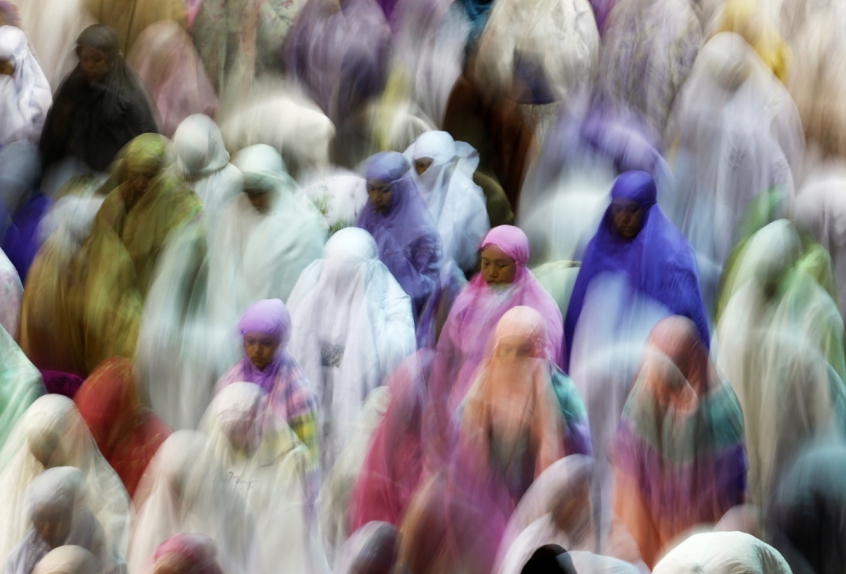
Islam is the fastest growing religion in the world and if present rates continue, soon after 2050 the number of Muslims will equal the number of Christians for the first time in history.
A new study from Pew Research says that differences in fertility rates, numbers of young people and numbers converting from one faith to another mean that over the next four decades, Islam will grow faster than any other major religion.
If current demographic trends continue, by 2050 the number of Muslims around the world, 2.8 billion, or 30 per cent of the population, will nearly equal the number of Christians, 2.9 billion, or 31 per cent.
The study shows that all of the world's major religious groups are poised for at least some growth in the coming decades with one exception - Buddhism. Surprisingly, given the trend towards secularisation in the UK at least, atheists, agnostics and other people who do not affiliate with any religion, will make up a declining share of the world's total population.
However, non-believers will increase in absolute numbers. It will merely appear as a proportionate decline because the growth among religious believers will be so much greater.
Some of the demographic changes will be particularly noticeable in the UK, where the report puts the numbers of Christians in 2010 at 64.3 per cent, Muslims at 4.8 per cent and unaffiliated at 28.8 per cent.

By 2050, it predicts, the numbers of Christians will have plummeted to below half, to 45.4 per cent of the population. More than one in ten, 11.3 per cent, of the UK's population will be Muslim and nearly four in ten, 38.9 per cent, will not be affiliated to any religion at all.
Pew Research's research, report and interactive website are part of the Pew-Templeton Global Religious Futures project, jointly funded by The Pew Charitable Trusts and the John Templeton Foundation to analyse religious change and its impact on society.
The new report explores changes from 2010 to 2050 in size and distribution of Buddhists, Christians, Hindus, Jews, Muslims, folk religions, other religions and the unaffiliated.
While many people have offered predictions about the future of religion, these are the first formal demographic projections using data on age, fertility, mortality, migration and religious switching for multiple religious groups around the world.
The projections find that, if current trends continue, one in ten people living in Europe will be Muslim by 2050. India will retain a Hindu majority but also will have the largest Muslim population of any country in the world, surpassing Indonesia.
In the United States, Christians will decline from more than three-quarters of the population in 2010 to two-thirds in 2050, and Judaism will no longer be the largest non-Christian religion. Muslims will be more numerous in the US than people who identify as Jewish on the basis of religion.
Four out of every 10 Christians in the world will live in sub-Saharan Africa. The global Buddhist population, while not growing massively, will remain fairly stable because of low fertility rates and aging populations in countries such as China, Thailand and Japan.
Jews, the smallest religious group for which separate projections were made, are expected to grow 16 per cent, from a little less than 14 million in 2010 to 16.1 million worldwide in 2050.

















